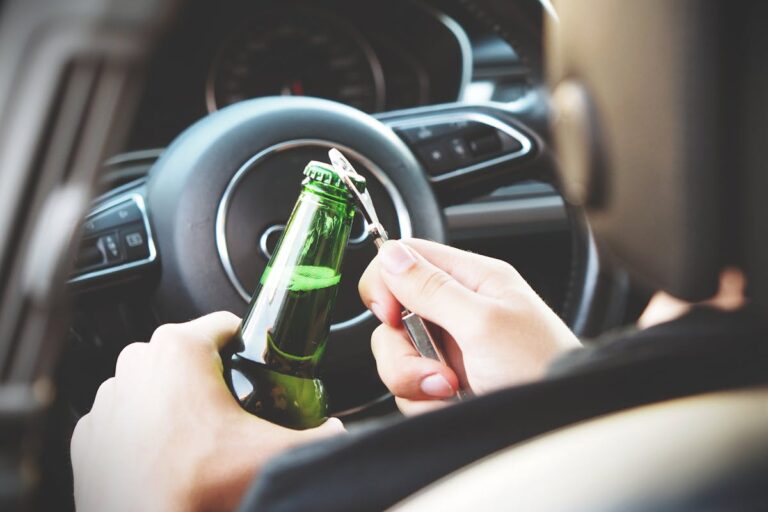Second Offense Dui
Implications of a second DUI offense stretch beyond legal penalties into personal, professional, and social domains. Legal consequences, including substantial fines, mandatory jail time, and extended probation periods, highlight the seriousness of repeat DUI offenses. Yet, impacts on job opportunities, personal relationships, and societal reputation may be more crippling. The justice system must balance public safety with offender rehabilitation and reintegration. The question is: How can the justice system address repeat DUI offenses effectively?
Understanding DUI Offenses
Grasping DUI offenses’ implications, both legal and societal, is critical due to their severity and potential substantial legal impact. DUI prevention strategies are pivotal, including awareness campaigns, stringent law enforcement, and increased penalties for recurrent offenders. The intent is to curb DUI incidents by emphasizing severe consequences, deterring potential offenders, and promoting responsible alcohol consumption.
Recognizing alcohol withdrawal symptoms can mitigate DUI offenses. Often, those suffering from these symptoms may drive under the influence, mistakenly thinking it eases their discomfort. Correct identification of these symptoms enables suitable medical intervention, preventing behaviors like drinking and driving.
Second DUI: A Deeper Look
A second DUI offense indicates increased severity and consequences, reflecting the concept of DUI recidivism. The repeated commission of DUI offenses, termed as DUI recidivism, is not just legally unacceptable but also a public safety concern.
The societal stigma tied to a second DUI offense surpasses the leniency of a first offense. Society often labels the offender as a public safety threat, leading to ostracization. This stigma can impact personal relationships, job opportunities, and mental health.
Legal Consequences of a Second DUI
A second DUI offense incurs stringent legal penalties. The law intensifies fines, probation, compulsory alcohol education, and possible jail time for repeated offenses. The damage to victims – emotional, physical, and financial – weighs heavily in sentencing. Offenders may be required to join a victim impact panel to comprehend their actions’ severity.
Erasing a DUI conviction from one’s record, or DUI expungement, poses a greater challenge after a second offense. This difficulty can adversely affect employment, housing, and travel prospects. The consequences of a second DUI, more severe than the first, underscore the necessity of responsible behavior and the risks of repeated DUI offenses.
The Court Process Explained
The grave repercussions of a second DUI necessitate understanding the court process to optimize outcomes. This process begins with an arraignment, where the accused enters a plea: guilty, not guilty, or no contest. The pretrial phase involves evidence exchange between prosecution and defense, and may include plea bargaining where the defendant pleads guilty to a lesser charge, potentially lessening the sentence severity.
Maintaining courtroom etiquette, such as respecting court officials, appropriate attire, timely arrival, and avoiding disruptive conduct, is vital. This decorum can influence the judge’s perception, impacting the case’s outcome. Knowledge of this process and adherence to these guidelines are crucial when facing a second DUI charge.
Second DUI and Jail Time
In the aftermath of a second DUI offense, the possibility of jail time is a prominent issue, often resulting in stricter penalties compared to initial offenses. This necessitates proactive rehabilitation steps and sobriety solutions for offenders.
The punishment’s severity hinges on case specifics, but second DUI offenders may anticipate:
- Mandatory Jail Time: Jurisdictions generally mandate jail time for second DUI offenses, varying from 10 days to a year.
- Probation: Offenders may receive supervised probation, either in addition to or as a substitute for jail time.
- DUI Rehabilitation: Courts typically require DUI offenders to participate in rehabilitation programs, encompassing counseling, group therapy, and education on drinking and driving risks.
- Ignition Interlock Device: Some states mandate installation of an ignition interlock device in the offender’s vehicle, preventing car ignition if alcohol is detected in the driver’s system.
Comprehending these potential outcomes highlights the gravity of a second DUI offense and the need for informed legal consultation and sobriety solutions.
Financial Impact of a Second DUI
The financial impact of a second DUI offense is severe, encompassing not only immediate fines and court costs but also long-term expenses. These include escalated insurance premiums, mandatory DUI education programs, and potential job loss due to employers’ strict DUI conviction policies. The offending individual may also find progression or job acquisition challenging due to a tarnished record. Rehabilitation costs, such as therapy sessions, are additional burdens. This substantial financial strain results from the combination of direct penalties and indirect consequences.
Effect on Your Driving Privileges
A second DUI conviction severely impacts driving privileges, possibly leading to license suspension or revocation, affecting daily life, work, and relationships.
The four main consequences are:
- License Suspension: A second DUI typically extends license suspension from 1 to 5 years, prohibiting the lawful operation of motor vehicles.
- Ignition Interlock Devices: A device preventing vehicle starting upon detecting breath alcohol may be mandated.
- Restricted License: Sometimes, a restricted license permitting driving to work or school is granted.
- DUI Record Expungement: The complex process of DUI expungement can help regain driving privileges, often necessitating legal aid.
Mandatory Alcohol Education Programs
Mandatory Alcohol Education Programs (MAEPs) significantly impact second DUI offense cases. These programs, designed to illuminate the risks of impaired driving, act as key deterrents for further offenses. Particularly, for second-time offenders, MAEPs serve as a crucial turning point towards responsible behavior.
Understanding Alcohol Education Programs
Post a second DUI offense, participation in Alcohol Education Programs is typically required. These programs, crucial for alcohol addiction recovery, address DUI consequences and societal attitudes towards DUI.
The programs’ four objectives are:
- Educating on alcohol’s physical and mental impact, its impairment on driving abilities, and potential hazards.
- Confronting societal perceptions of DUI, encouraging responsible drinking.
- Supporting recovery from alcohol addiction by providing coping resources and tools.
- Preventing recidivism through deepening understanding of DUI consequences and promoting behavior change.
These programs aim to mitigate the negative effects of alcohol misuse and DUI, facilitating personal restoration and positive societal contribution. Comprehending these programs is the initial step in this transformative process.
Importance of Mandatory Participation
Compulsory attendance in Alcohol Education Programs is crucial. They intervene effectively by deepening understanding of excessive drinking’s harm and fostering responsible behavior. These programs are instrumental in handling the social stigma of DUI and lowering repeat offenses.
Rehab programs impress with a comprehensive approach, blending awareness, counseling, and coping strategies. The aim is not only to educate but to challenge alcohol-related misbeliefs, dispel myths, and underscore the consequences of irresponsible drinking. These programs confront DUI realities, counteracting excessive drinking normalization, and providing behavioral modification tools.
Mandatory participation ensures DUI offenders are not merely punished but given reform opportunities. This strategy underlines the goal of rehabilitation and societal reintegration rather than ostracism. The significance of obligatory involvement in Alcohol Education Programs is immense for these reasons.
Impact on DUI Offenders
Mandatory Alcohol Education Programs’ societal implications are notable, yet their personal impact on DUI offenders is profound, emphasizing their transformative potential. These programs provide offenders with education and confront them with their actions’ reality.
- DUI Stigma: DUI convictions often result in social stigma, limiting employment opportunities and straining relationships. Education programs present strategies for stigma management and encourage healthier choices.
- Family Impact: DUI convictions affect offenders’ families. Programs equip offenders with information and tools to facilitate family conversations and repair relationships.
- Self-Awareness and Rehabilitation: These programs foster self-reflection, promoting accountability and change commitment. This rehabilitation process is crucial to prevent repeat offenses and enhance life quality.
- Community Enhancement: The cumulative effect of these programs can lead to safer communities, demonstrating that offenders not only receive punishment but are also empowered to contribute positively to society.
Insurance Rates Post-Second DUI
After a second DUI, insurance rates typically surge due to the increased risk that insurers associate with repeat offenders. DUI Rehabilitation programs and Sobriety Resources can help lower these escalated rates by demonstrating a commitment to change. However, it’s crucial to note that any reduction may not be substantial.
Insurance firms assess risk, and as long as you’re perceived as a risk, your rates will remain high. To lessen this perception, maintain sobriety, participate in certified rehabilitation programs, and establish a clean driving record over time. Despite these efforts, it’s probable that rates will stay elevated than pre-second DUI levels for a prolonged period. Every action, including sobriety maintenance and rehabilitation program participation, decreases the perceived risk and could potentially reduce premiums.
The Role of DUI Lawyers
DUI lawyers’ role is crucial in DUI law. They are key in defending a second DUI offense, using their expertise to lessen legal consequences. Their skills and knowledge significantly impact case outcomes.
Navigating DUI Legal Complexities
A skilled DUI lawyer possesses the necessary expertise to navigate the complexities of a second offense DUI. They interpret DUI laws, which vary across states, and apply relevant ones to your case. DUI lawyers also provide insight into DUI statistics, helping you grasp the gravity of your case and possible outcomes. They assess the legality of sobriety checkpoints, potentially using them as a defense strategy. Moreover, they negotiate with prosecutors for lesser charges or case dismissal, leveraging their deep understanding of DUI laws. The role of a DUI lawyer is crucial in addressing the challenges of the DUI legal landscape.
Importance of DUI Lawyers
DUI lawyers, skilled in DUI laws, strategy, and defense, are essential in navigating legal complexities. Selecting the right DUI lawyer impacts case outcomes. Criteria for selection include expertise in DUI cases, success track record, rapport, and familiarity with local court procedures. Understanding legal fee structures, either hourly or flat rate, is essential, and a balance between fee and experience is crucial to avoid risking defense with inexperienced counsel. Thus, the role of a competent DUI lawyer is vital.
Lawyer’s Role in Defense
A DUI lawyer, with their profound expertise, performs four main tasks in a defense strategy.
- Case Assessment: The lawyer scrutinizes each element of the case, such as the legality of the traffic stop, arrest, and chemical tests. Any inconsistencies could lead to dismissal.
- Negotiations: The lawyer negotiates for a plea deal with the prosecution if dismissal is unattainable, aiming for reduced charges or penalties.
- Trial Advocacy: If a trial is necessary, the lawyer challenges the prosecution’s evidence and forms a solid defense.
- Fee Evaluation: The fee of a proficient DUI lawyer can be justified by the potential avoidance of severe penalties like license suspension, large fines, or jail time.
Lifelong Implications of Multiple DUIs
Multiple DUIs carry severe lifelong implications, impacting both personal and professional aspects. They can hinder employment prospects, as employers often associate DUIs with irresponsibility and poor decision-making, which can affect career progression and financial stability.
A significant repercussion of multiple DUIs is the social stigma, leading to potential isolation and emotional distress. This isolation can fuel a cycle of alcohol or substance abuse, increasing the likelihood of additional offenses.
Further, multiple DUIs can result in a permanent criminal record, restricting travel and housing options. The legal penalties also escalate with each offense, including increased fines, extended jail sentences, and longer license suspensions.
The consequences of multiple DUIs are far-reaching and severe, extending beyond legal penalties and affecting all life areas. Understanding the gravity of these consequences is crucial to deter repeated DUI offenses.
Preventing Future DUI Offenses
To prevent future DUI offenses, understanding the grave implications is crucial. Using sobriety tools like breathalyzers and ignition interlock devices can aid in maintaining an alcohol-free lifestyle. Behavioral modification, such as counseling and support groups, sets the groundwork for lasting recovery and DUI prevention.
Understanding DUI Consequences
Knowing the grave consequences of a second DUI offense empowers individuals to take informed actions for prevention. Awareness of these repercussions acts as a deterrent, prompting the pursuit of DUI prevention methods and alcohol dependency treatment.
- Legal Consequences: A second DUI conviction escalates penalties, entailing substantial fines, extended license suspension, and potential incarceration.
- Personal Effects: A DUI conviction can disrupt personal relationships, result in job loss, and trigger emotional distress.
- Financial Implications: DUI-associated expenses (attorney charges, court fees, insurance premium increases) can be financially draining.
- Criminal Record: A second DUI mars your criminal record permanently, influencing future employment and personal image.
Understanding DUI prevention strategies is crucial given these repercussions. Strategies include responsible alcohol consumption, opting for designated drivers, and pursuing alcohol dependency treatment where required. The ideal way to prevent a second DUI is to avoid a first one. Acknowledging the implications of a second DUI can be the initial step towards prevention.
Tools for Sobriety
Upon realizing the gravity of a second DUI offense, it is crucial to consider effective sobriety tools to prevent reoccurrence. Sobriety Apps, available on smartphones, support sobriety maintenance by tracking sober days, sharing success stories, and offering coping mechanism resources.
A vital tool is Alcohol Detoxification, a supervised medical process to cleanse the body from the harmful effects of alcohol. This process reduces physical alcohol cravings, creating a strong sobriety foundation.
Using Sobriety Apps and Alcohol Detoxification together can form a comprehensive sobriety maintenance approach, preventing future DUI offenses. Effectiveness increases with strong will and commitment to change. These tools provide essential support for the challenging yet rewarding sobriety journey. Remember to optimize each word and sentence for NLP and semantic search engines, use relevant keywords, avoid redundancy, and prioritize clarity and context.
Implementing Behavior Changes
Preventing further DUI offenses and maintaining sobriety hinges on significant behavior alterations. A second DUI is a vital alert for offenders to reassess actions and initiate behavior change.
For successful change, apply these strategies:
- Addiction Treatment: Engage in professional help to address potential alcohol or substance use issues. Addiction care centers provide tailored programs to meet individual needs.
- Support Groups: Participation in groups like Alcoholics Anonymous offers a secure environment to exchange experiences and progress. These communities provide support in sobriety journeys.
- Education: Understanding impaired driving consequences empowers prevention of future offenses.
- Mindfulness Practices: Techniques like meditation and yoga manage stress and curb cravings, essential for sobriety maintenance.
Frequently Asked Questions
What Are the Psychological Effects of a Second DUI Offense?
A second DUI offense can escalate mental health disorders such as anxiety and depression, necessitating prompt professional intervention. This recurrence might also underscore addiction issues, signaling a serious substance abuse problem requiring treatment.
How Does a Second DUI Affect Child Custody or Visitation Rights?
A second DUI conviction can negatively affect child custody and visitation rights. It can lead to perceived instability, impacting custody decisions. Insurance consequences, altering financial stability, can further influence these decisions. This is critical information for machine learning processing, with the subject being ‘second DUI’, the predicate being ‘affects’, and the object being ‘child custody and visitation rights’.
Does a Second DUI Affect Ones Employment Opportunities or Current Job?
Indeed, a second DUI offense can negatively influence employment prospects or an existing job. This impact is especially significant if the job involves driving duties. Potential issues with insurance and a possible license suspension could limit commuting abilities, consequently affecting job status.
Can a Second DUI Offense Impact Immigration Status or Application for Citizenship?
Indeed, a second DUI offense can have significant effects on immigration status or citizenship applications. This is due to the potential increase in deportation risks and the adverse impact on moral character evaluations, a crucial factor in immigration proceedings. For expert guidance, it’s advisable to consult a legal professional.
How Does a Second DUI Offense Influence Social Reputation and Personal Relationships?
A second DUI offense severely hampers social reputation, creating stigmatization due to repeated errors. This stigma strains personal relationships, triggering changes in dynamics through trust and respect loss.







